How Safe Is Costa Rica?
Costa Rica has become one of the most popular expat and digital nomad destinations in Latin America, known for its natural beauty, relaxed lifestyle,...
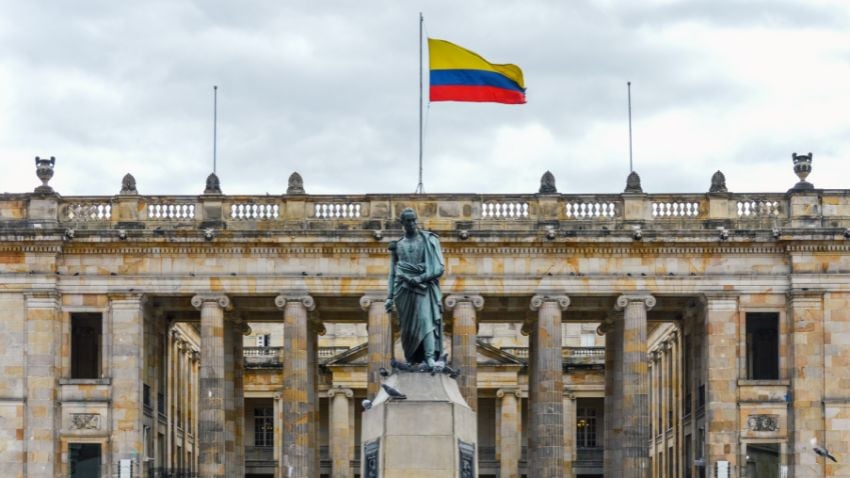
3 min read
2022 has been an important year in South American politics, with presidential elections being held in several countries. However, the most polarizing of them to date was Colombia, which elected a leftist president for the first time. A former guerrilla fighter, Gustavo Petro narrowly edged out the centrist candidate Rodolfo Hernandez in a run-off election and will assume the presidency in August.
However, his election has not been without controversy. Petro now faces the task of delivering on some big campaign promises, such as increasing social welfare spending and scaling back natural resource extraction, and addressing climate-related issues.
Related content: Easiest Ways To Get Your Residency In Colombia
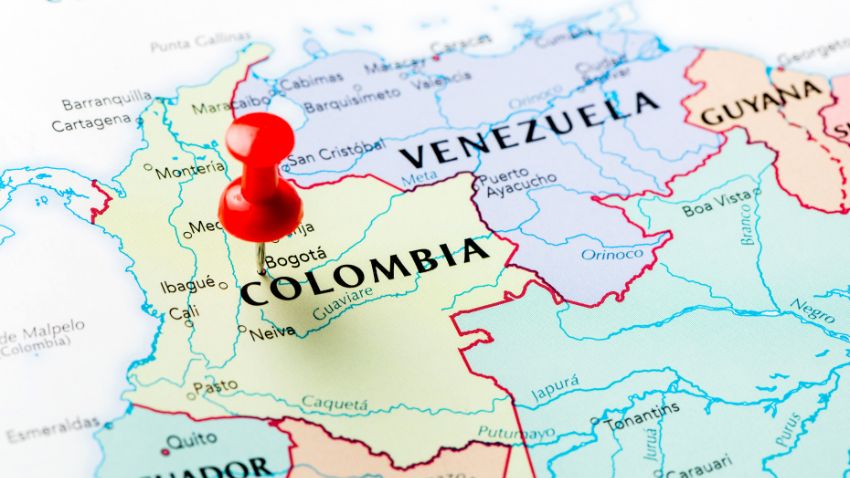
Map of Colombia
While Colombia is more known for its decades-long civil war and the likes of Pablo Escobar, the country has made impressive strides in recent years thanks to prudent economic policies. As a result, it has been one of the fastest growing countries in the region, pre- and post-pandemic.
More recently, Colombia has become a popular destination for foreigners, retirees and working-class professionals due to the low cost of living and affordable housing compared to major North American cities. The Colombian government has been keen to capitalize on this trend, and several visas are available for remote workers, investors, and retirees.
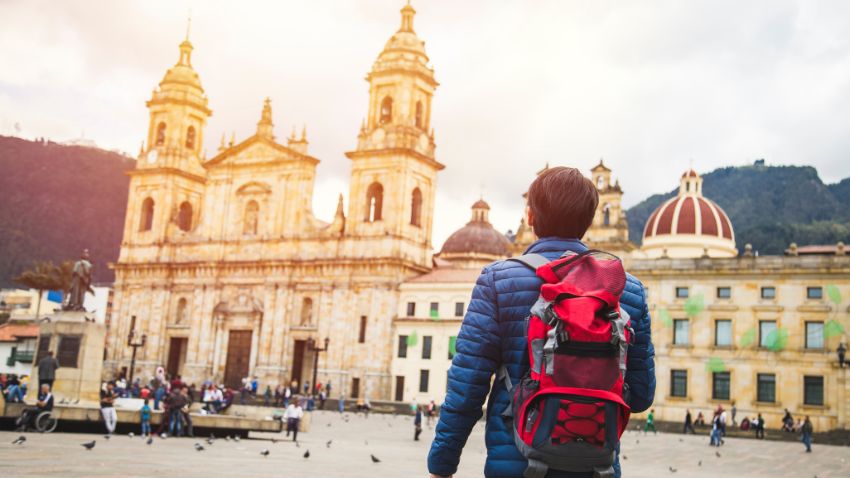
Traveller in Bogota, Colombia
Despite posting high economic growth over the last two decades, Colombia is a developing country and not without its share of problems. Furthermore, it was hit hard by the Covid-19 pandemic, which exacerbated some underlying domestic problems. Therefore, it was no surprise that the presidential elections would be hotly contested, with Gustavo Petro narrowly defeating the centrist, Rodolfo Hernandez.
While South America had been shifting toward the left in recent years, most notably in Chile and Peru, this is a first for Colombia, where the center and right have been the dominant force in politics. However, it should be noted that Petro's party, Pacto Histórico, lacks a legislative majority, so he will have to work with the more moderate center and right-leaning parties.
Colombia's diverse population has played a vital role in shaping the country's political landscape. With a mix of different ethnicities, cultures, and backgrounds, the population of Colombia adds to its vibrant and dynamic character
Related content: The Basics Of How To Get A Second Passport Or A Second Residency

View of A Cathedral in Cartagena, Colombia
Gustavo Petro, a former senator and mayor of Bogota, has long been a polarizing figure in Colombian politics. While he has tempered his rhetoric and pledged to not expropriate land, some of his proposed reforms are controversial, to say the least. At the top of the list is a pro-environment agenda that will halt future oil exploration and limit natural resource extraction. While he has stated that he will honour all current contracts, it does not bode well for an industry comprising over half of Colombia's exports.
As with other leftist presidents in the region, he advocates a state-led economic model with increased social welfare spending. Suffice to say; you do not have to be an economist to understand there is a problem with the idea of increasing spending while limiting (or reducing) sources of income. He has also proposed raising taxes on the wealthy, taxing unproductive land uses (such as cattle grazing), along with services like cell phone plans. Some of them are unpopular and unlikely to make it through the legislature.
Make no doubt about it, Colombia will be headed in a different direction with Gustavo Petro at the helm. While this will disappoint some, the lack of a legislative majority will help temper some of his more controversial proposals. At the same time, failing to deliver on his campaign promises opens the door for social unrest, much like in 2019.
Colombia's beautiful coast, with its stunning beaches and vibrant coastal cities, is a major attraction for tourists and foreigners. The coastal areas offer a unique lifestyle with access to picturesque places, a warm climate, and a variety of water activities. The coastal region of Colombia is known for its vibrant nightlife, delicious food, and lively music and dance scenes. It is a place where people can enjoy quality time with family and friends, creating unforgettable experiences.
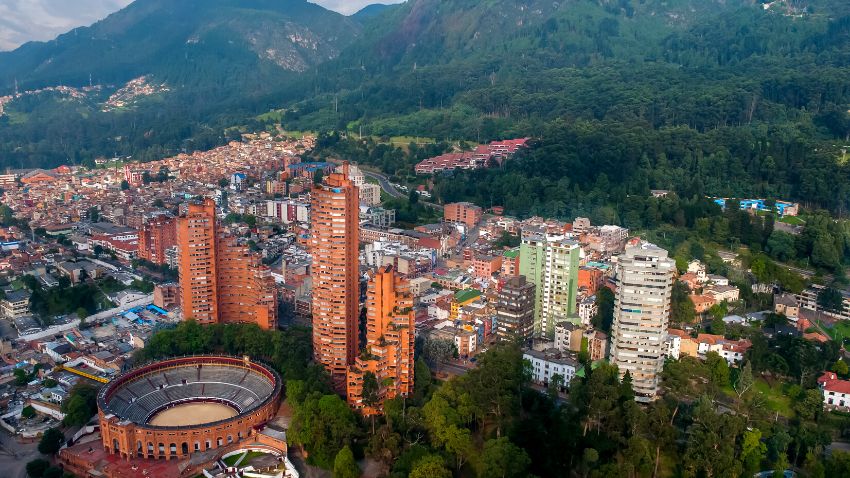
Bogota, Colombia
Now you are probably wondering if you should cross Colombia off your list. If you plan to invest in natural resource extraction, you might want to look elsewhere. Even though Colombia may not be as attractive as before, the country still has a lot going for it. The Peso recently hit an all-time low of 4,600:1 COP/USD in July, and while it has recovered somewhat since then, it is forecast to remain over 4,000:1 for the foreseeable future.
With remote work becoming more commonplace and the rising price of real estate in major North American cities, Colombia will remain a popular destination for expats, retirees, and investors. This is especially true in popular tourist destinations like Cali and Medellin, with increased demand for short-term and long-term rentals.
Other things to consider are the ongoing conflict in Ukraine and growing tensions between the US and China. While Colombia is not immune to external events, real estate will remain a solid investment and can be used to obtain residency. Sure, Colombia’s investability will take a hit with Petro, and there is plenty of uncertainty about where the country is headed in the next four years. Still, it is unlikely that Colombia will follow the disastrous path of neighbouring Venezuela.
If you want the best intel from the expat world, including profitable offshore opportunities, little-known tax-saving strategies, and hard-won insights on immigration, passports, and Plan-B residencies, all delivered to your inbox every single week, then join our daily correspondence, EMS Pulse®. Currently enjoyed by over 84,000 expats and expat-hopefuls worldwide. Fill in the form below to join our newsletter free:

Written by Mikkel Thorup
Mikkel Thorup is the world’s most sought-after expat consultant. He focuses on helping high-net-worth private clients to legally mitigate tax liabilities, obtain a second residency and citizenship, and assemble a portfolio of foreign investments including international real estate, timber plantations, agricultural land and other hard-money tangible assets. Mikkel is the Founder and CEO at Expat Money®, a private consulting firm started in 2017. He hosts the popular weekly podcast, the Expat Money Show, and wrote the definitive #1-Best Selling book Expat Secrets - How To Pay Zero Taxes, Live Overseas And Make Giant Piles Of Money, and his second book: Expats Guide On Moving To Mexico.
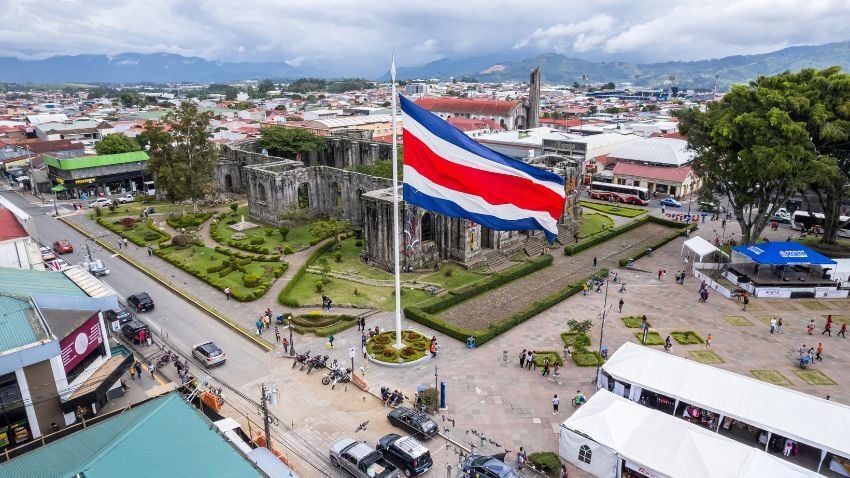
Costa Rica has become one of the most popular expat and digital nomad destinations in Latin America, known for its natural beauty, relaxed lifestyle,...

Mexico remains one of Latin America’s most compelling destinations, especially for North Americans. More than a million expats call it home, and tens...

South Korea is far more than K-pop and K-dramas. It is a country known for outstanding food, from bustling street markets to high-end dining, as well...